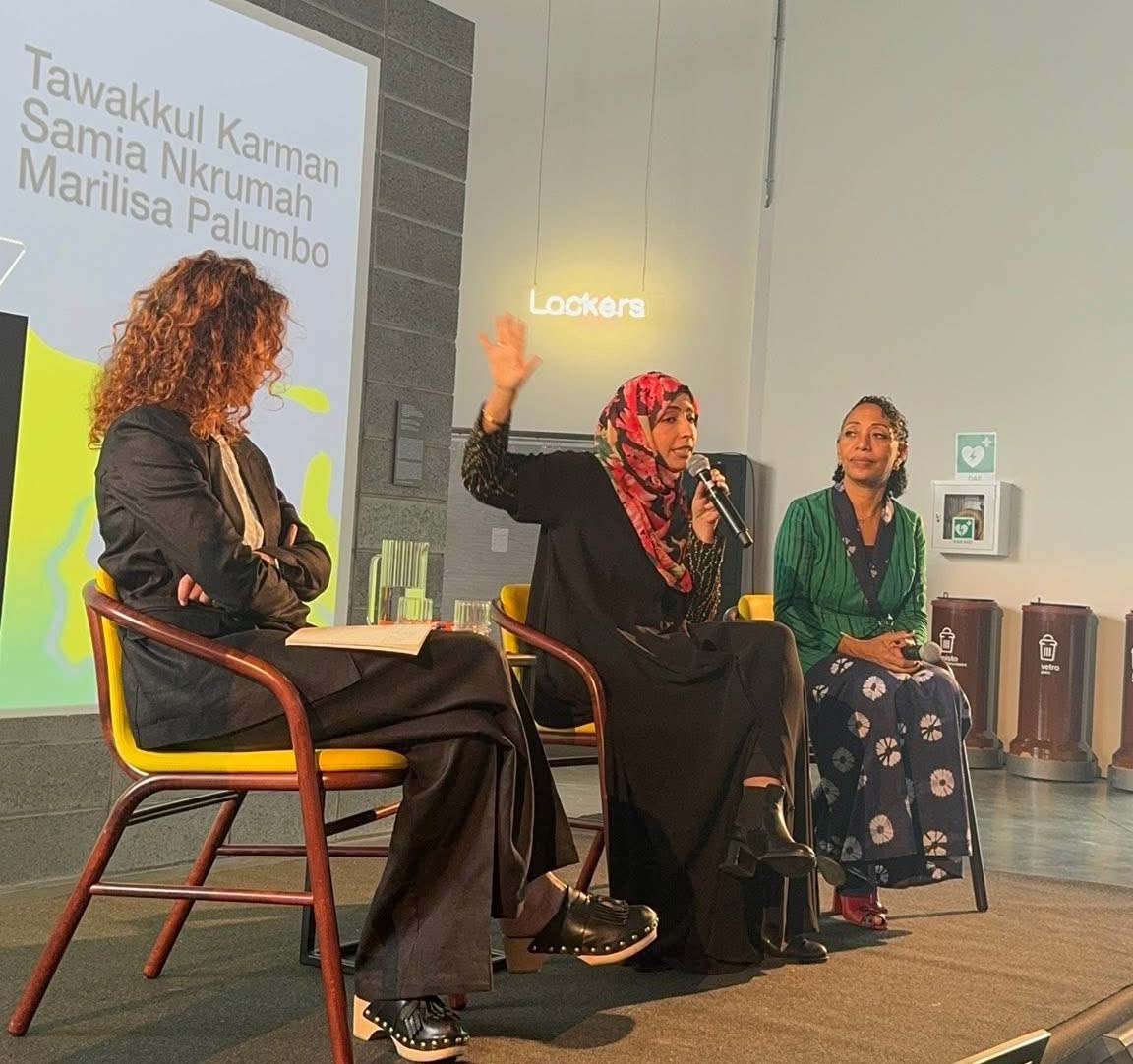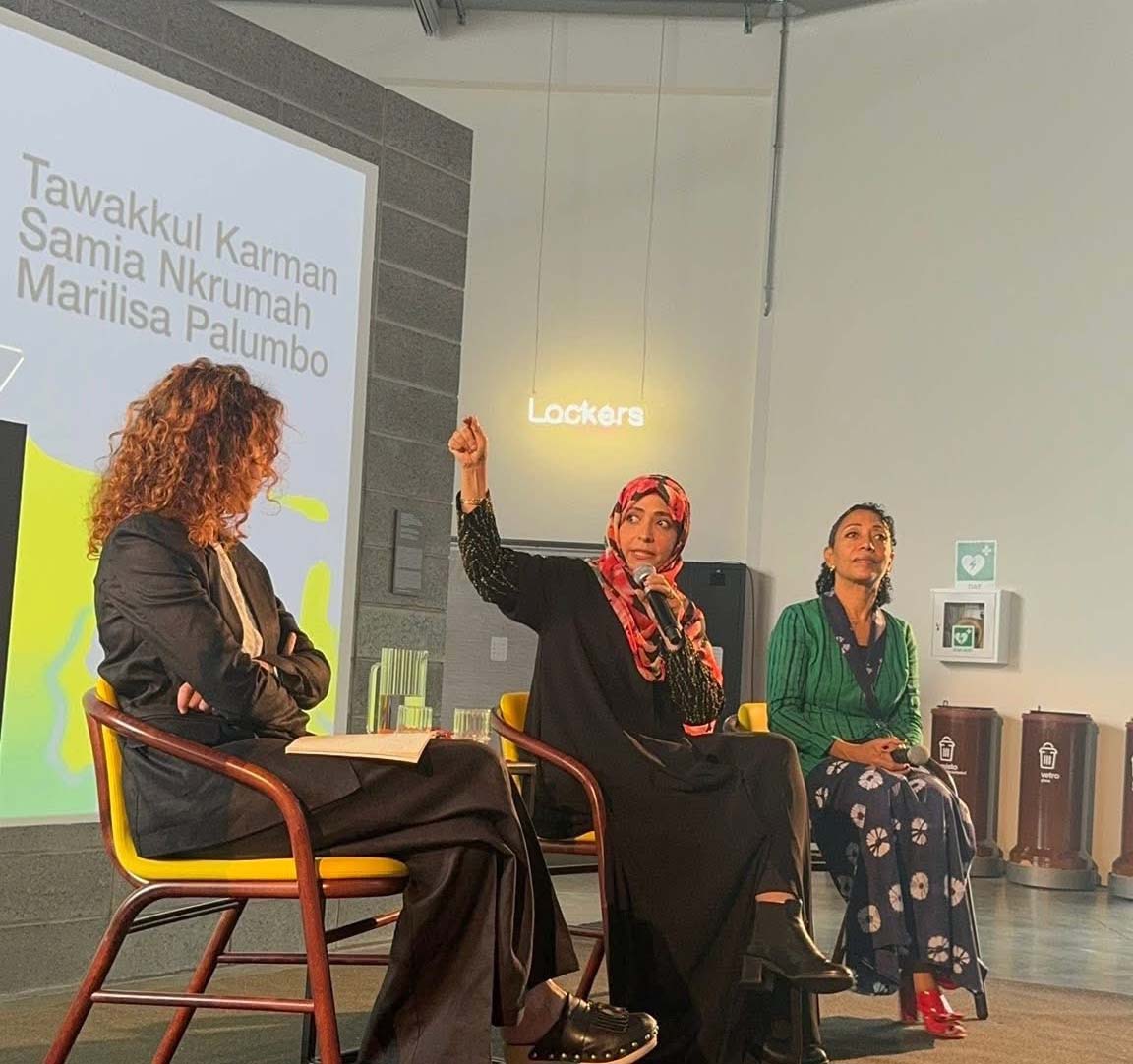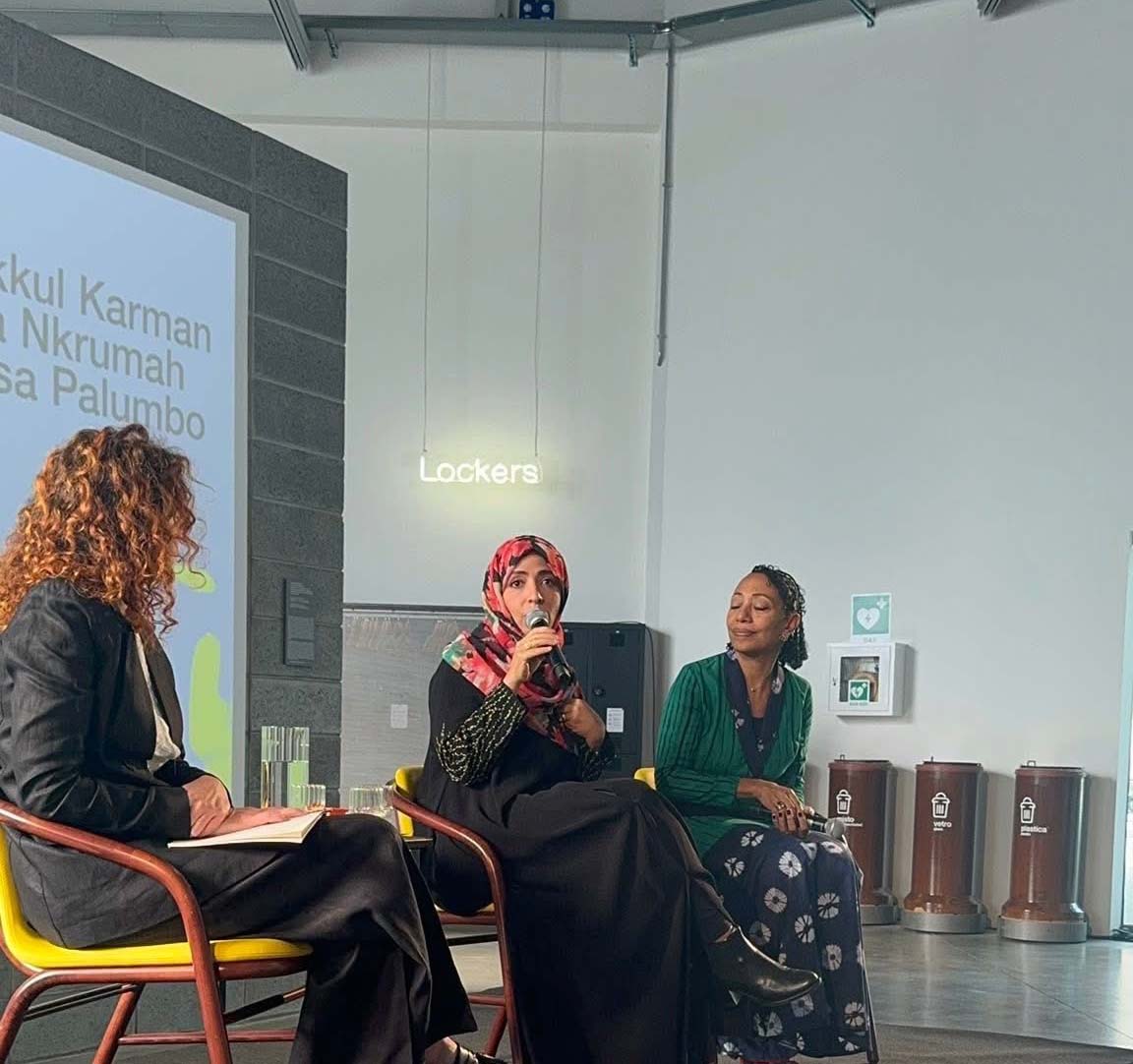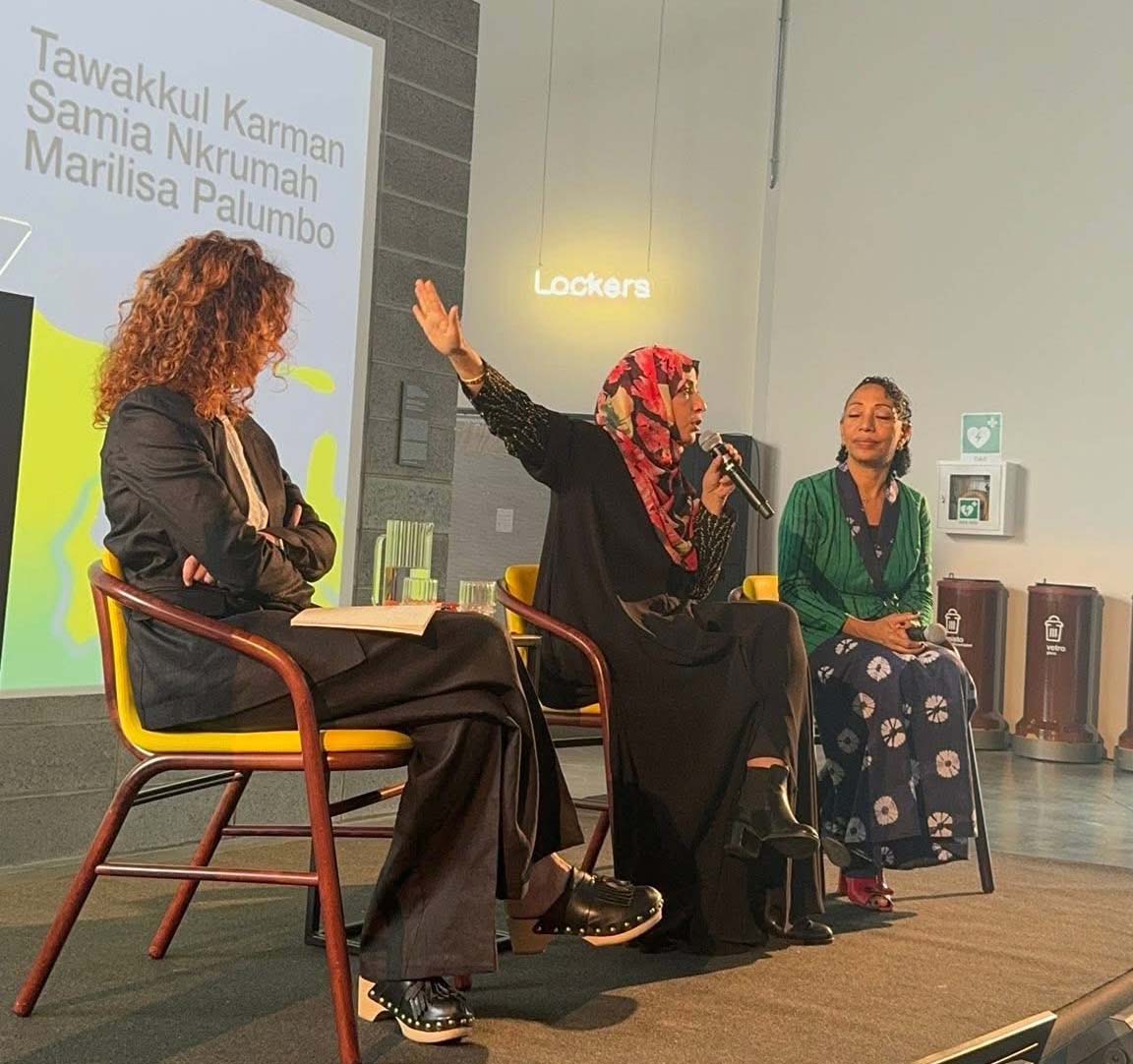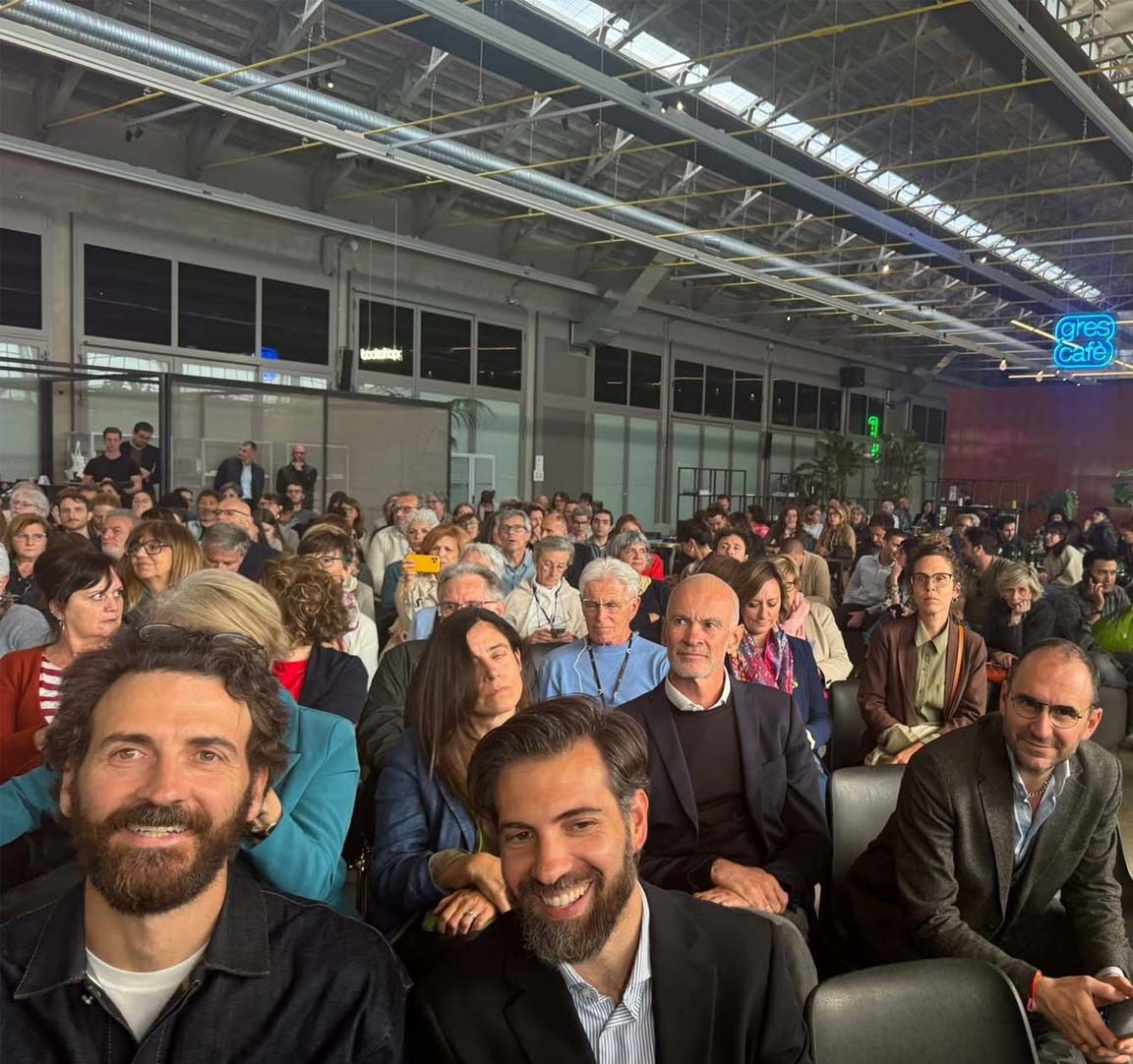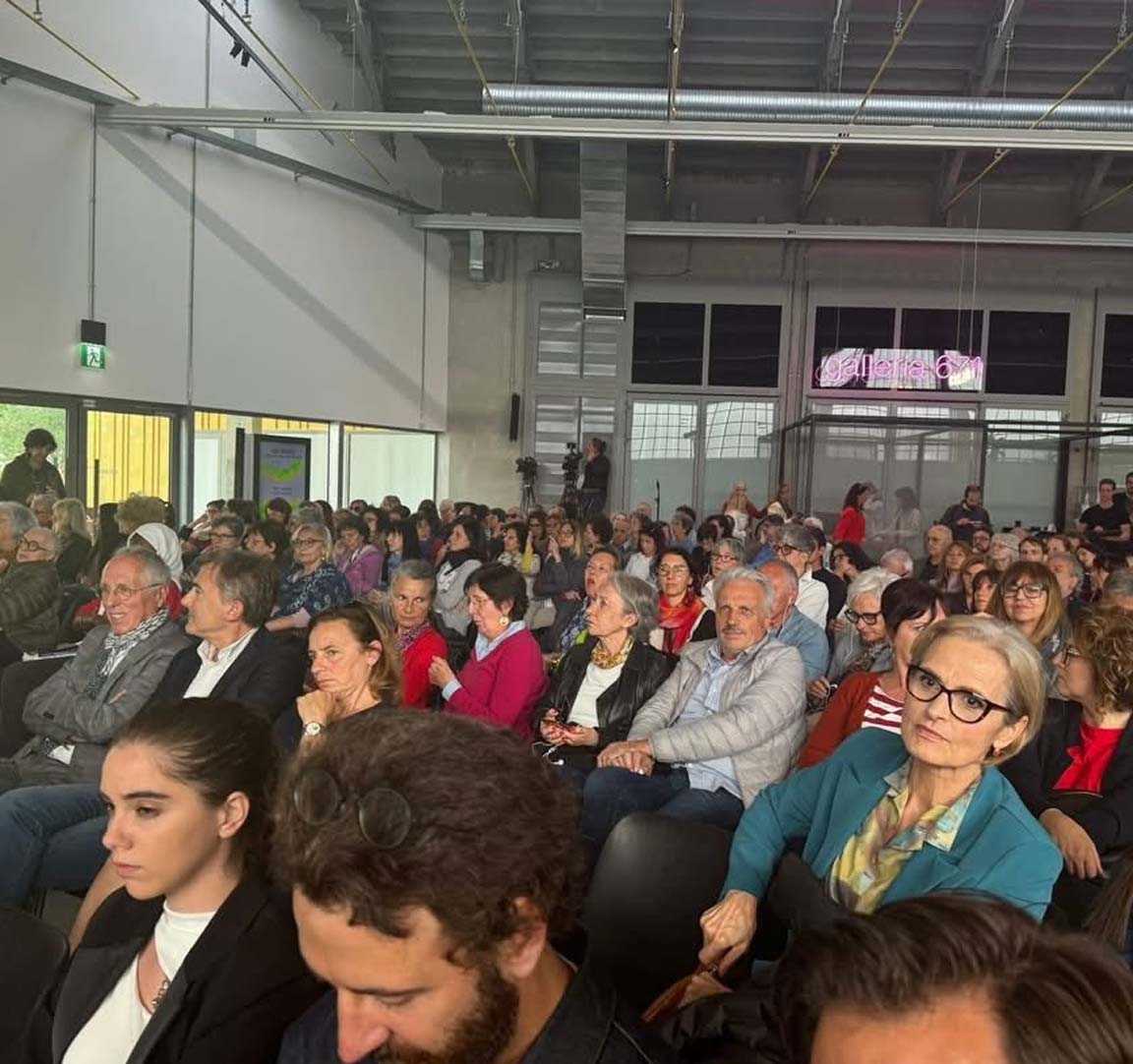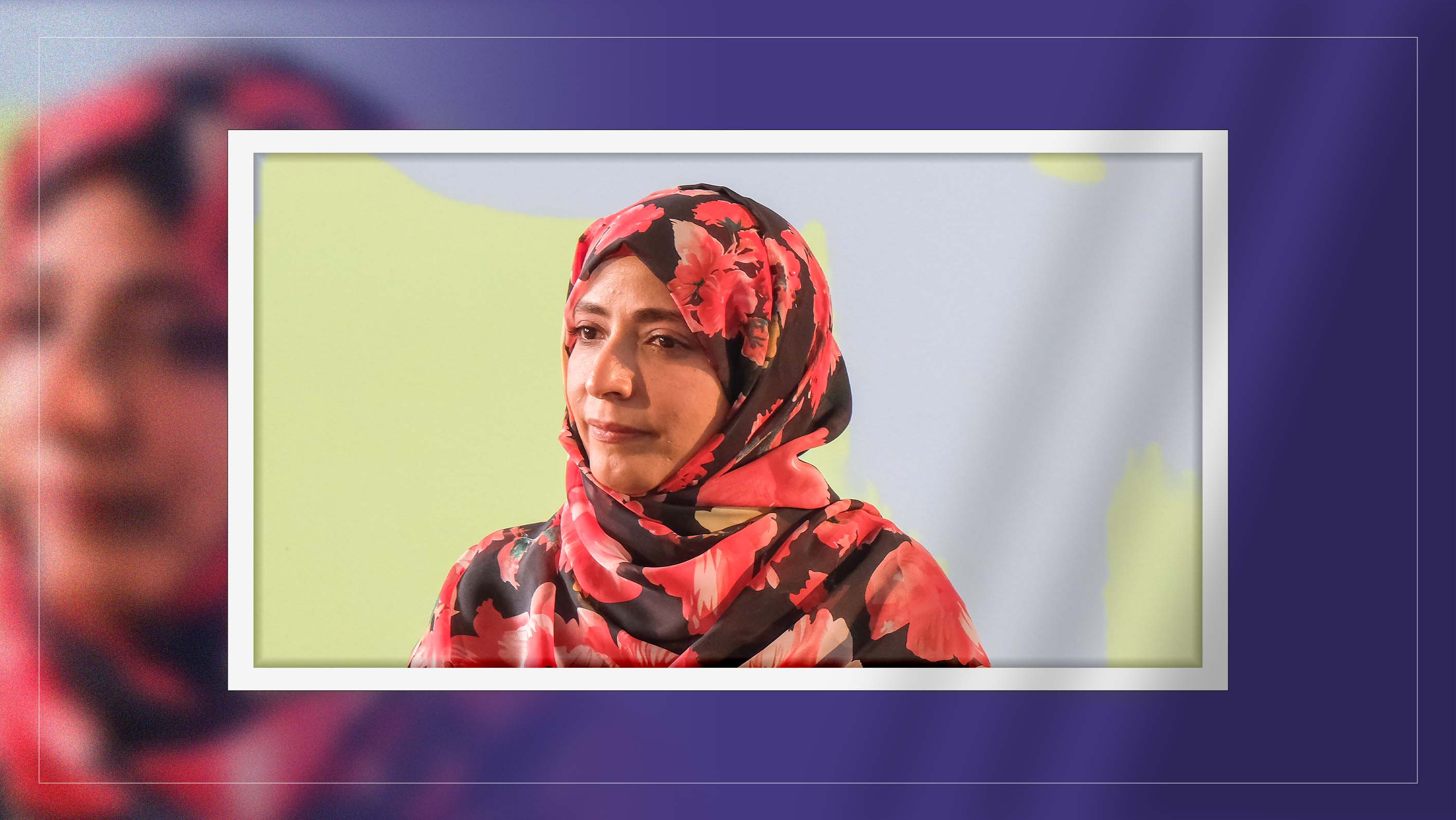During her participation in the “Culture of Peace” forum, part of the “Art for Peace” festival hosted by the Gres Art 671 Center in Bergamo, Nobel Peace Prize laureate and human rights activist Tawakkol Karman emphasized the significant role art can play in addressing humanitarian challenges and fostering mutual understanding between peoples.
Karman, speaking at the event, conveyed that she viewed art as a powerful force capable of confronting tyranny and occupation. She noted that artistic expression, in her view, holds the potential to bridge divides, inspire resistance against injustice, and cultivate peace in societies facing conflict.
The dialogue session, which focused on the relationship between art, culture, and the promotion of peace and human rights, also featured Ghanaian political activist Samia Nkrumah, daughter of the late Ghanaian leader Kwame Nkrumah. The contributions of both women were seen as a testament to their shared commitment to feminist ideals and the pursuit of justice and freedom. Their remarks collectively underscored the importance of using art as a medium to spread a culture of peace.
Karman also spoke about the “Art for Peace” initiative led by her foundation, which aims to empower young Yemeni artists to use their creativity as a vehicle for positive change. She explained that the project encourages youth in Yemen to become peacebuilders through art, offering them a platform to challenge violence and promote dialogue within their communities.
Reflecting on her own background, Karman shared that she took pride in being Yemeni, a woman, and her father’s daughter. She said that although her father may not have expected her to become a revolutionary, he had taught her the importance of taking initiative and being proactive in seeking solutions rather than waiting for change to happen. According to her, he instilled in her the principles and values that guided her activism, particularly in a country where she believed the ruling regime had long been the root of the nation’s crises.
Karman went on to describe her 14-year commitment to revolutionary activism, stating that although the journey had been long, she remained steadfast in her cause. She remarked that she and her fellow revolutionaries had faced numerous tyrants since the 2011 uprisings across the Arab region, and that many of those who had supported the revolution continued to make sacrifices to this day. She said she had not surrendered, nor had they, and she affirmed that the path to freedom remained arduous. Drawing a connection to Italy’s own historical struggles for liberty, she suggested that Italians were well acquainted with the high price of freedom.
In closing, Karman issued a call for resistance to hatred, racism, and xenophobia. She urged people to support democratic principles, suggesting that doing so would serve not only their countries but the broader cause of peace. She stressed that the solution lay in coexistence, mutual respect, and a shared dedication to improving laws and upholding constitutional values.
The “Art for Peace” festival brought together artists, thinkers, and activists from around the world to explore how creative expression can contribute to global reconciliation and the advancement of human rights.
